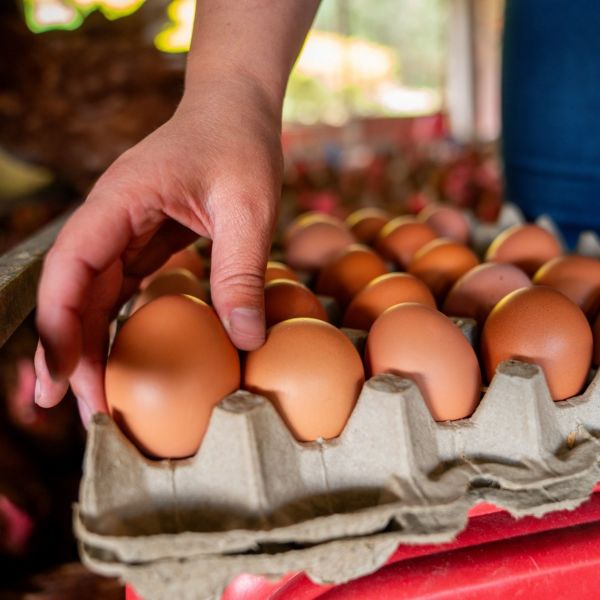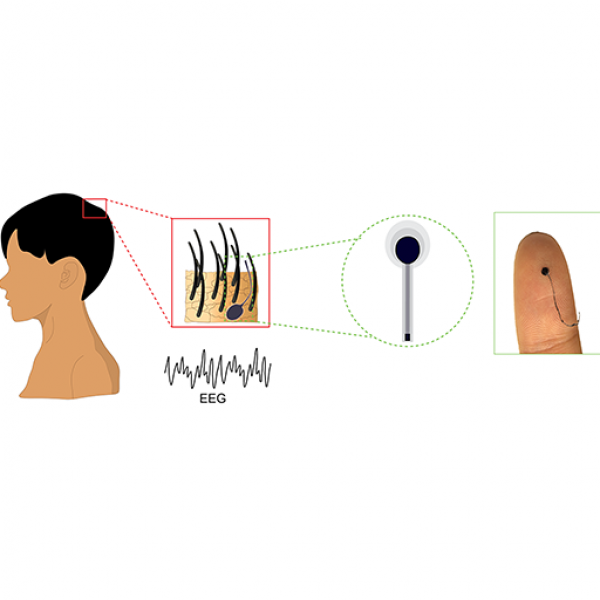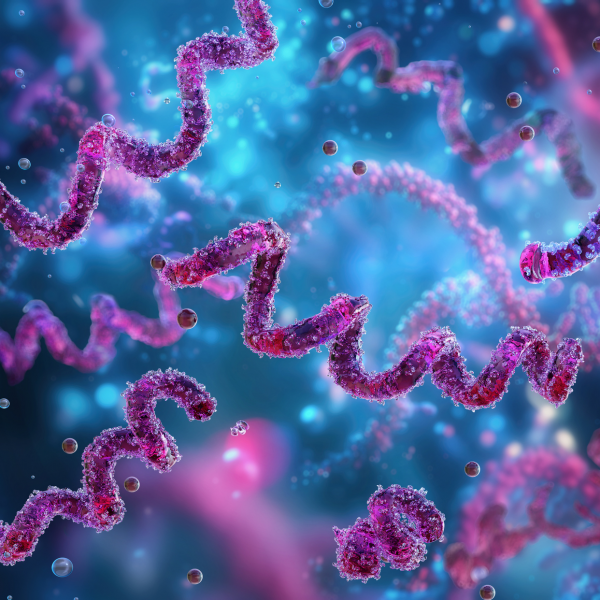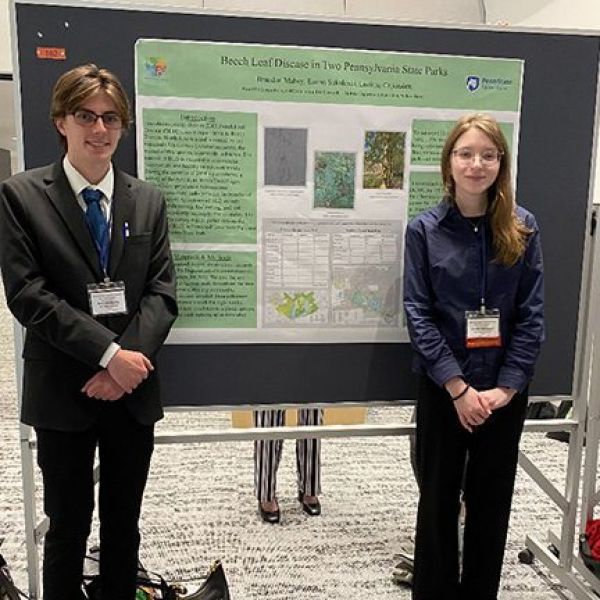News

May 07, 2025
Some water conservation programs may get more value by targeting rural farms
Conservation programs aimed at boosting environmentally friendly practices by incentivizing farmers may get more bang for their buck by targeting rural farms rather than more urban ones, according to a study led by researchers at Penn State.
Full Article

May 07, 2025
Biological physicist Réka Albert elected to National Academy of Sciences
Réka Albert, Evan Pugh University Professor and professor of physics and biology at Penn State, has been elected to the National Academy of Sciences.
Full Article

May 07, 2025
Common diabetes drug helps chickens lay more eggs
Metformin, a drug commonly prescribed to humans, could be a game-changer for farms and food production, researchers said.
Full Article

May 02, 2025
The future of brain activity monitoring may look like a strand of hair
A new hairlike electrode makes long-term, high-quality EEG monitoring less cumbersome and inconspicuous.
Full Article

May 01, 2025
$2.7M NIH grant to fund first comprehensive syphilis test
In collaboration with his clinical partners at Penn State Health, Carle Foundation Hospital and University of Alabama Birmingham, Dipanjan Pan aims to develop a one-step confirmatory laboratory test that can definitively diagnose active syphilis infection within 10 minutes.
Full Article

May 01, 2025
Students, faculty find evidence of beech leaf disease in two state parks
Penn State Wilkes-Barre student and lecturer and Penn State Scranton student present research poster during Pennsylvania Academy of Science meeting.
Full Article

Apr 30, 2025
Energy deficiency impacts collegiate running performance
New study from researchers in the Penn State Department of Kinesiology is first to measure how preseason energy levels can predict athlete performance.
Full Article

Apr 30, 2025
Celebrating James Marden: A Decade of Impact and a Lifetime of Achievement
After a decade of exceptional service to the Huck Institutes of the Life Sciences and a distinguished academic career spanning four decades, James Marden, professor of biology and associate director of operations, will retire from Penn State at the end of June 2025.
Full Article

Apr 29, 2025
HGSAC prepares for largest Life Sciences Symposium yet
The Life Sciences Symposium, organized by the Huck Graduate Student Advisory Committee (HGSAC), is set to showcase student research on May 23.
Full Article

Apr 29, 2025
Heather Hines named interim director of the Center for Pollinator Research and the Insect Biodiversity Center
Heather Hines, Associate Professor of Biology and Entomology, has been named Interim Director of the Center for Pollinator Research (CPR) and the Insect Biodiversity Center (IBC). Hines is succeeding Christina Grozinger, Publius Vergilius Maro Professor of Entomology and director of the Huck Institutes of the Life Sciences.
Full Article